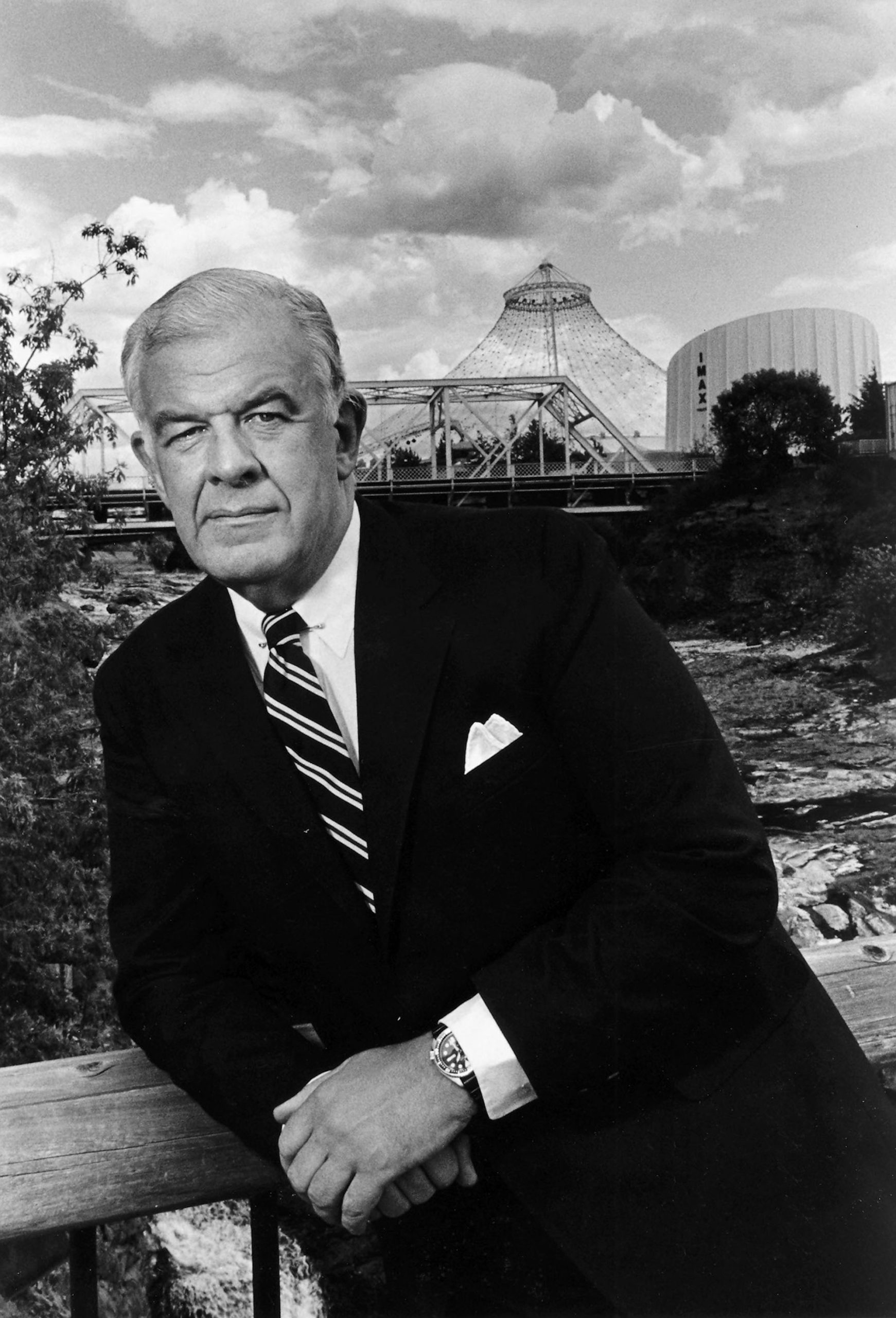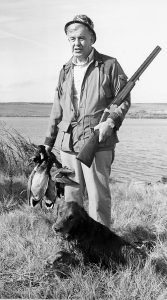Bipartisan by nature Bipartisan by nature Bipartisan by nature
A new biography of Tom Foley hearkens back to an era of cooperation in politics.
By Hannelore Sudermann | September 2025

In the late 1940s, Tom Foley boldly decided to leave his hometown of Spokane, drop out of Gonzaga University—his father’s alma mater—and enroll at the University of Washington. It was, in some ways, a political move, the first on a path to one of the most powerful positions in Washington, D.C.
University of Washington Magazine caught up with Kenton Bird, co-author of “Tom Foley: The Man in the Middle,” as he travels the region discussing the book after recently retiring as a professor at the University of Idaho. The book covers a time in American politics when dignity, cooperation and cross-party respect were the norm. Political scientist John C. Pierce co-authored the biography of the congressman who served 30 years in the U.S. House—including 5½ as Speaker. Pierce worked for a time in Foley’s congressional office in the early 1970s.
More than a profile of a civic leader from the Democratic Party, the biography captures the broader story of Congress from the 1960s through the 1990s, showing what politics used to be—and could be again.
Foley’s desire to serve his community had deep roots. He was born in 1929, the son of a long-serving Superior Court judge and a daughter from a farming family in rural Washington. Though they raised him in one of the city’s more affluent neighborhoods, his parents encouraged his awareness of Spokane’s economic inequalities. He witnessed the Great Depression from the passenger seat of his father’s car as they drove to see the shantytowns and breadlines firsthand. These early scenes left an impression and helped shape Foley’s belief that public service was a way to create opportunity and social justice.
His fresh start at the UW paid off. Foley completed his bachelor’s degree in history in 1951 and then, after a few detours, graduated from the UW law school in 1957. He began his legal career back in Eastern Washington, first practicing law with his cousin Henry Higgins, then working in the Spokane County prosecutor’s office. By 1959 he had become an assistant attorney general. In 1961, Sen. Henry Jackson, ’35, brought him to Washington, D.C., to work on the Senate Interior Committee.
Two years later, almost at the last minute, Foley decided to run for Congress. The biography tells the story of how, in two days, he made the decision to run, had a night of celebration in Seattle, got a late start to Olympia because his friend overslept, had to deal with a flat tire and arrived to file just 25 minutes before the deadline. In the space of 29 hours, “suddenly, I had decided to run, gone to Olympia, filed and found myself the nominee,” he told Bird in a 1995 interview.
Foley proved an appealing candidate: a young man with rural roots in the east side of the state and educational ties in the west. “He was young, vigorous, a new face and very Lincolnesque in appearance,” Bird says. “He had the bearing of a congressman even when he was in high school.”
His intellect, self-deprecating humor and grace fueled his rapid ascent. Bird describes him as “incredibly smart, yet incredibly humble. Even though from the mid-1970s he was on this rapid roller coaster up to the highest ranks of Congress, he never forgot his roots in Eastern Washington.”
“Even the people who disagreed with Foley politically found him gracious and charming and friendly,” Bird says. “It was impossible to get anybody to say anything critical about Tom Foley, even when I offered to go off the record.”
 Bird first became fascinated with Foley while serving in Washington, D.C., as a fellow with the American Political Science Association. He happened to be there when Foley’s predecessor resigned as Speaker. Two weeks later, Foley took the gavel. That moment “cemented my interest in him,” Bird says. Later, while in graduate school at WSU, Bird was hired to process Foley’s 30 years of congressional papers—an exhaustive task that gave him insight into the man and the institution he served. Bird also conducted more than 100 oral-history interviews with Foley, his friends and political peers.
Bird first became fascinated with Foley while serving in Washington, D.C., as a fellow with the American Political Science Association. He happened to be there when Foley’s predecessor resigned as Speaker. Two weeks later, Foley took the gavel. That moment “cemented my interest in him,” Bird says. Later, while in graduate school at WSU, Bird was hired to process Foley’s 30 years of congressional papers—an exhaustive task that gave him insight into the man and the institution he served. Bird also conducted more than 100 oral-history interviews with Foley, his friends and political peers.
One of Foley’s closest friends in Congress was Republican Robert Michel of Illinois, the House Minority Leader during Foley’s speakership. “It was a time when people could disagree without being bitter enemies,” Bird says. “He had a great ability to work with Republicans and create bipartisan cooperation.” During his time as Speaker, the House passed landmark legislation, including the Americans with Disabilities Act, the Family and Medical Leave Act and the Brady Handgun Violence Prevention Act.
Still, politics caught up with Foley. By 1994, his lengthy tenure was considered by some a liability. “We saw the lingering effects of term-limits initiatives and the perception that Foley had been in office too long,” Bird says. The National Rifle Association also targeted him, despite his being a gun owner and bird hunter. After a mass shooting west of Spokane at Fairchild Air Force Base, Congress enacted a 10-year ban on semi-automatic assault weapons—a move that prompted the NRA to spend an estimated $300,000 campaigning against Foley. He lost his long-held seat by a narrow margin.
“What struck me was how gracious he was in defeat,” Bird says. “The following morning, he went to the microphone and began by thanking his constituents for giving him the privilege of representing them for 30 years.” That, Bird concludes, was the ultimate Tom Foley: “Grace, humility and appreciation that we don’t see today.”
The biography is both a tribute to a remarkable statesman and the 1992 recipient of the University of Washington’s Alumnus Summa Laude Dignatus, the University’s alumni lifetime achievement award. It’s also a reminder of what’s been lost in the changing landscape of American politics. “This is not just the story of Tom Foley,” Bird says, “but the story of Congress itself, and a reminder that one person can still make a difference.”